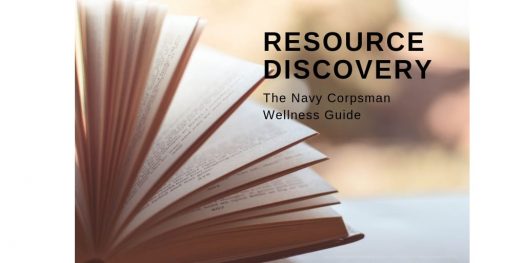Stress is something all of us face on a regular basis. Stress can be good in that it motivates us to get things done and to problem-solve. Unfortunately, we are also aware of how stress can have the opposite effect. It can overwhelm us at times, cause anxiety, and interrupt our daily lives. Most of us who work in helping professions are all very aware of the effects ongoing stress can have on our clients and patients.
But what about the stress that we have as service providers? Our job is to take care of others and to do no harm, however, it is relatively common for us to overlook our own stress. That is why it is critically important to notice our own stressors and how they might be affecting us. Ongoing mental and physical stress can be managed so that it doesn’t lead to job burnout.
This Resource Discovery, The Navy Corpsmen Wellness Guide, is geared toward Navy Corpsmen, whose job it is to provide medical and preventive health care to their fellow service members in the Navy and the Marines. They are trained medical technicians who are often deployed with combat units in the field and are considered extremely vital members that help to maintain the health and strength of the soldiers in their units. This guide provides tools and resources that can assist Navy Corpsmen in identifying and reducing stress, but much of it is a very applicable toolkit that can be utilized in healthcare and mental health professions.
The information in this guide includes: an introduction to stress, how stress affects us both physically and mentally, determining your own stress level, determining the sources of your stress, and healthy routines or practices that can build and maintain resilience. Click here to access The Navy Corpsmen Wellness Guide and read about all that it has to offer.
This post was written by Jason M. Jowers of OneOp. His team aims to support the development of professionals working with military families. Find out more about OneOp on our Facebook and Twitter.
Blog Image: Photo created in Canva















